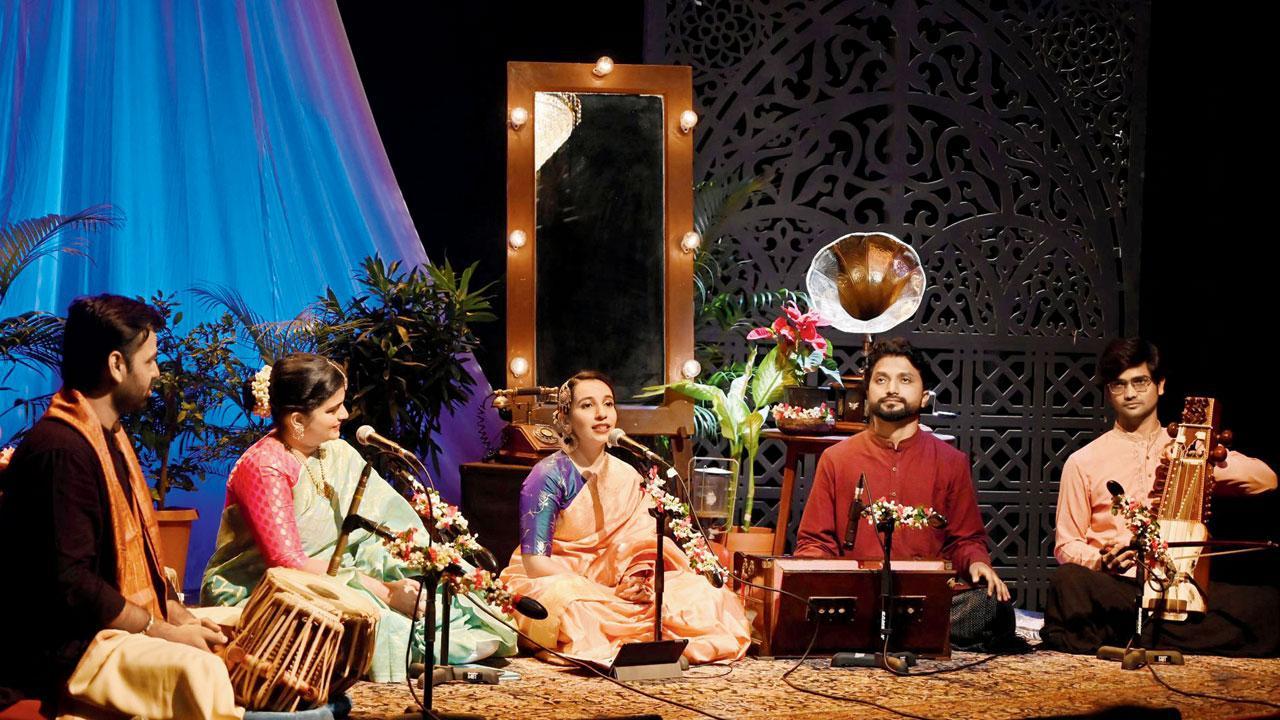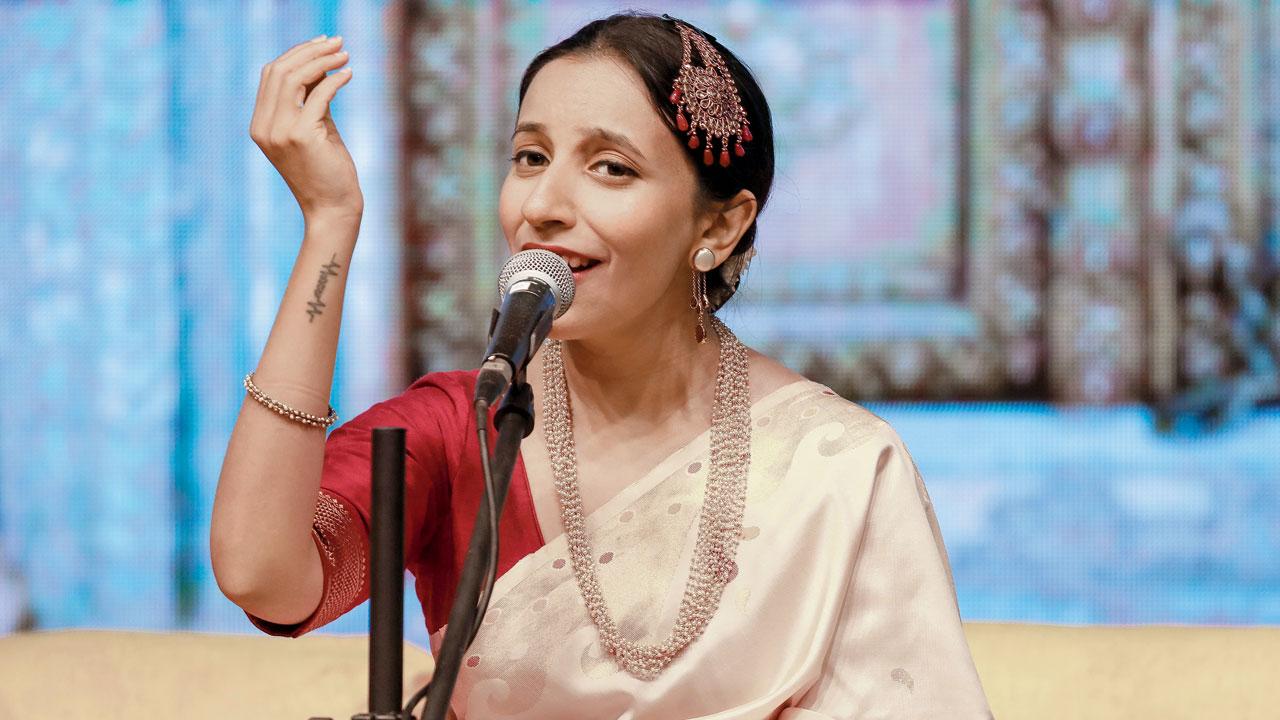Songstresses who championed several semi-classical forms in the 1800s are often reduced to their sexual identity today. A baithak brings alive their golden era and musical genius

The concert weaves in elements of an intimate baithak, such as a gramophone that was significant in spreading the music of the gaanewalis
With Holi around the corner, it’s almost impossible to scroll down Instagram without singer Kavita Seth’s soulful Rangi saari gulaabi chunariya serenading every other Reel. Long before songs could go viral, it was Hindustani classical songstress Shobha Gurtu who originally gave voice to the semi-classical composition. Lending it an irresistible romantic charm with the abhinaya in her voice, she transformed the composition into a classic. Like Gurtu, there are several women singer-composers or gaanewalis who championed semi-classical forms like thumri, dadra and ghazal. Titled O Gaanewali, an upcoming mehfil-style concert in Bandra will celebrate these genres and their women performers.
ADVERTISEMENT
Originally crafted as a virtual performance during the lockdown for Harkat Studios, with the support of The Goethe Institut, Max Mueller Bhavan, the production is written and conceptualised by musician Avanti Patel. It is directed by Mallika Singh and Meghana AT. Along with vocalist Rutuja Lad, Akshay Jadhav on the tabla, Apoorva Petkar on the harmonium and Ejaz Hussain on the sarangi, Patel will bring alive the golden era of songstresses such as Gurtu, Gauhar Jaan, Janakibai, Raasoolan Bai and Begum Akhtar, among others, in an intimate baithak-inspired setting at the charming Bandra bungalow-turned-culture house, Art & Charlie. The troupe also has performances lined up at Prabodhankar Thackeray Mini Auditorium in Borivali, and Dr Kashinath Ghanekar Mini Auditorium, Thane, on March 8 and 11, respectively.

Avanti Patel
The show, Patel shares, evolved out of her love for these forms of music. “I’ve enjoyed studying thumri and ghazal over the years. I’ve always wanted to do something with these forms in the commercial space because I feel that they get lost over time. It’s not just that the music is lost, there’s so much musical history that fades away along with it. The show is an attempt to revive this,” she tells us. The vocalist explains that the gaanewalis, along with nachnewalis, thrived from the late 1800s to the early 1900s. Often tagged as tawaifs, these highly educated women mastered music and dance, and held financial and sexual autonomy. “Modern history has reduced them to sex workers. It’s not that they didn’t do sex work. Imagine it like a contractual marriage with a rich patron, who would pay them and look after their daily affairs. The women were responsible for entertaining their patron and the latter’s guests, through music and dance. They were well-respected in society,” she elaborates.
However, pressures from the British Raj, coupled with the growing Indian nationalist movement, led to their downfall. From the 1930s, there were bills that demanded the shutting of kothas and performances by tawaifs, Patel reveals. Their contributions to the freedom struggle — they were known to hold secret meetings for independence leaders in their kothas or hide weapons — were also maligned. “In many concerts during the freedom struggle, they would end with patriotic songs. These were their ways of contributing to the movement. But they weren’t credited for that. They were not looked at as the image of the new India,” she points out.
During the show, the performers will introduce the musical forms developed by the gaanewalis and delve into how to engage with them. The audience will be regaled with stories and anecdotes that narrate the history of gaanewalis, along with eight to nine compositions. The musical pieces are themed around love, longing and separation. “While tracing these genres, we’ll also recall the contributions of women performers like Gurtu and Begum Akhtar, who were not categorised as tawaifs, although their lives followed a similar trajectory. By then, the word tawaif was so maligned that performers wouldn’t use it at all,” Patel shares. In fact, the term gaanewali has historically been considered a slur, too. “By naming the show after them, we hope people stop considering the word an insult,”
she adds.
On: March 5; 7 pm
At: Art & Charlie, Bandra West
Log on to: artandcharlie.com or ticketkhidakee.com
Cost: Rs 650 (for the Bandra show)
 Subscribe today by clicking the link and stay updated with the latest news!" Click here!
Subscribe today by clicking the link and stay updated with the latest news!" Click here!








